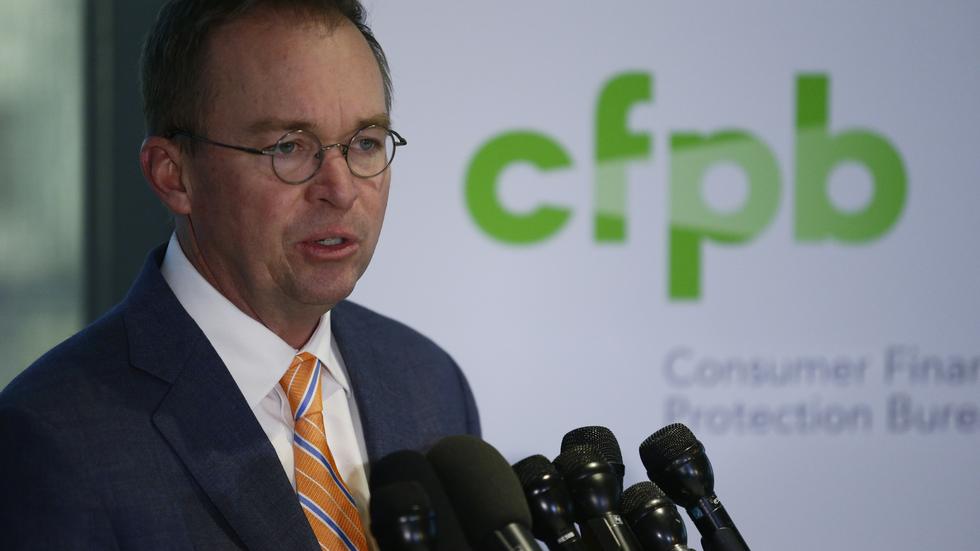HARI SREENIVASAN: In his first week as acting director of the Consumer Financial Protection Bureau, Mick Mulvaney said that President Trump put him in the position to "Protect people without trampling on capitalism". And one of Mulvany's more controversial moves was revealed this week to strip the enforcement power from the C.F.P.B. unit that pursues discrimination cases. Joining me to discuss the new tactic of the C.F.P.B. is Washington Post reporter Renae Merle. So first tell us what did the C.F.P.B. do or what are they planning to do?
RENAE MERLE: Well right now you have Mick Mulvaney as acting director and he's trying to reform this agency and make it not as aggressive as it has been under Democratic leadership. And so he's pulling back from some of the more aggressive actions that the C.F.P.B. has done over the last couple of years.
HARI SREENIVASAN: And specifically this division that he's restructuring used to do what?
RENAE MERLE: The Office of Fair Lending was in charge of finding cases where minorities – blacks, Hispanics or women were being charged more than whites and they brought some big cases against both banks and auto lenders where they found that blacks and Hispanics were being charged more – a higher interest rate, which could amount to hundreds of dollars. And they brought some cases in those circumstances.

HARI SREENIVASAN: So in those cases the banks that are paying millions of dollars in fines?
RENAE MERLE: Yes. Yes the banks ended up paying millions of dollars a fine and Ally Financial case which is one of them or landmark cases in this area, they paid almost a hundred million dollars and were accused of charging again blacks and Hispanics more higher interest rates for auto loans.
HARI SREENIVASAN: So what happens to this particular group now if it moves under the aegis or umbrella of the director's office?
RENAE MERLE: It's basically going from career government leadership to political leadership. It's going to be in the director's office. It's going to do most of the same things but it's not going to have the fat, the power to pursue cases or supervise companies and with supervising companies you're at the company data in day out and seeing if they're doing the right – things they're no longer to have the power to do that. Instead they're going to be doing things like education and coordination. And so it's just not going to have the same force that it has over the last six years.
HARI SREENIVASAN: So this is just one part of kind of a philosophical stance that Mick Mulvaney has taken of how he wants to reform the C.F.P.B. in a different light?
RENAE MERLE: So Mick Mulvaney, before he became acting director, he was a Republican congressman. And at that time he called the C.F.P.B. a joke. He said he wished it didn't exist. He cosponsored legislation that would have done away with the agency. Now is that the head of the agency and he does say we're going to do whatever the law says the CFPB should do. But they're obviously not going to be doing it in the same aggressive manner as they did before. Mick Mulvaney thinks that it should be more of a cooperation with the financial sector that it's not about punishing them, it's about working with them.
HARI SREENIVASAN: So is there a solution that might work in the next six months or a year to try to balance this out? What does what does the C.F.P.B. kind of office or what does a director's office say? Are they saying "Don't be concerned about this. We will still do enforcement."
RENAE MERLE: Yeah there's definitely saying we're still going into enforcement. They actually are saying that now that the Office of Fair Lending is in the director's office it's closer to the top of the organization. Though that means it's also a part of the political operation of this bureau so it doesn't have the same powers go after companies.
HARI SREENIVASAN: Ok, Renae Merle of The Washington Post. Thanks so much for joining us.
RENAE MERLE: Thank you.












